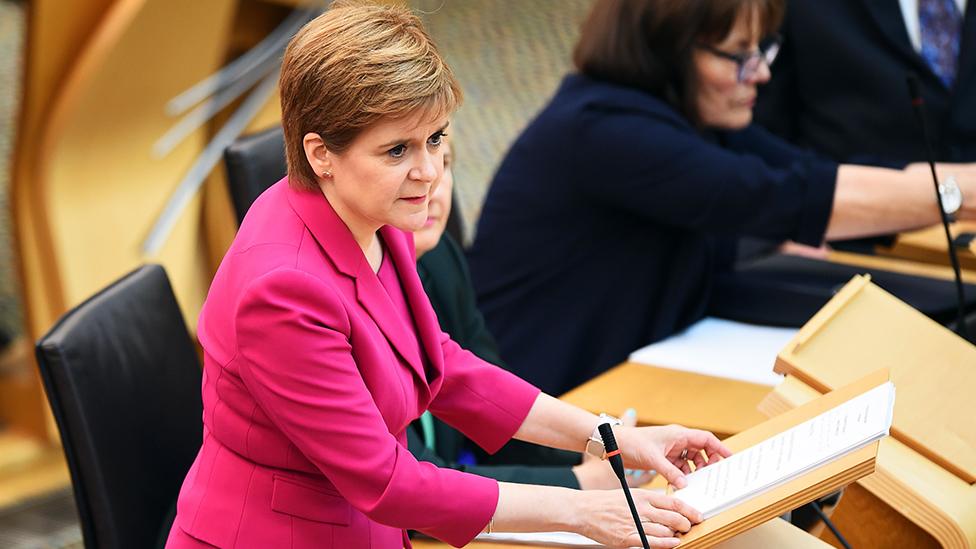Election footing: no, not that one
- Published
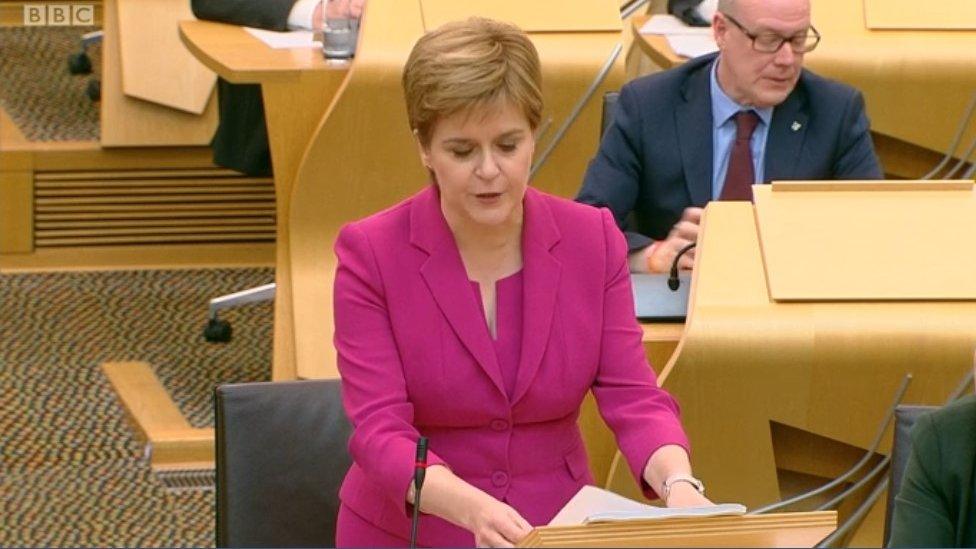
Nicola Sturgeon unveiled her government's plans for the year
Holyrood is now 18 months from its next election. Nicola Sturgeon's Programme for Government on Tuesday, laid some of the groundwork for it.
It won't be all about independence. The economy, and in particular the green part of it, is playing a prominent role.
Within that, a lot of money is being ploughed into buses. Prepare for a response to Labour's proposal that bus transport be made free to all age groups, with an offer to those aged up to 26.
Ruth Davidson's resignation as Scottish Tory leader has served several purposes. One is as a klaxon to remind us that Holyrood politics is beginning to re-orient itself towards its next election.
You'll recall that the prospect of fighting that as the Conservative leader filled her "with dread" - leaving it open to interpretation as to how much this was due to the state of politics, or to the relative appeal of being back home with toddler Finn.
Of course, Holyrood politics is over-shadowed by Brexit, Westminster and a possible UK election within a few weeks. But with rather less noise, the heavy machinery is being slowly moved into place, and the groundwork laid for the Holyrood contest in May 2021.
You could assume it'll be all about independence, and you may be right. But in the Programme for Government, published on Tuesday,, external there were some interesting indicators about electoral positioning on other fronts, in the ministerial corridor of St Andrew's House.
This used to be described as Holyrood's "Queen's Speech without the flummery" (though, on reflection, it may only have been me that described it that way).
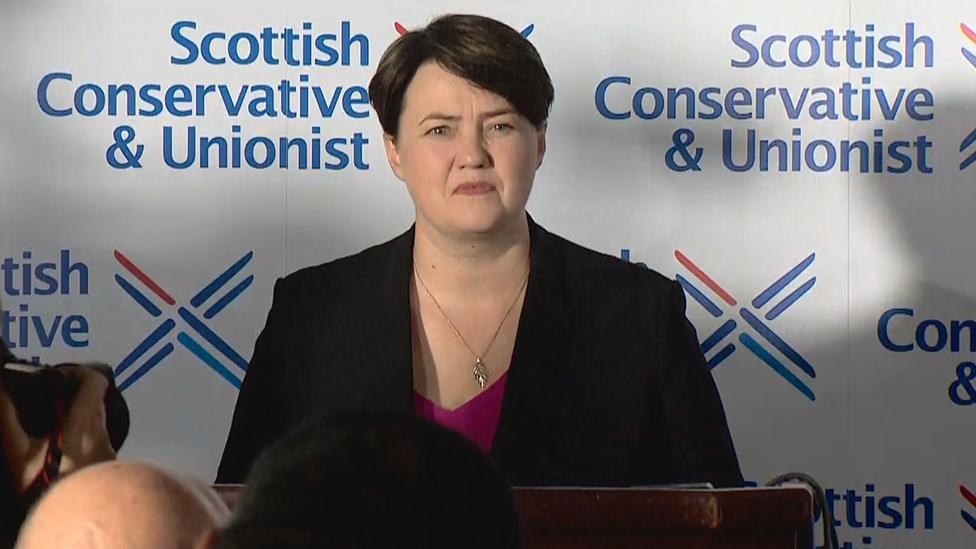
Ruth Davidson announced last week that she was standing down as the leader of the Scottish Tories
But this hardy annual in the political calendar has become a lot more than a list of legislation. It's about that, but also progress-chasing in public, setting new priorities, drafting a manifesto, stealing some thunder from the choices being made this coming winter by the finance secretary, while injecting some new tigress into the governing party's political tank as the new term starts.
On the buses
Nicola Sturgeon set the bar high for expectations of what can be achieved towards cutting climate-changing emissions. The Green MSPs, who have kept her in power through the current parliament's budgets, will surely question if it's high enough.
But having learned, over 11 years, that one has to be strategic about priorities - putting a lot of her political and financial capital into childcare in the current parliament - the environmental one looks like being a strategic choice for 2021 and beyond.
Much of that has to do with infrastructure spending on public transport. These are the big ticket items in the programme for government - electrifying more rail lines, and throwing half a billion at improved bus corridors.
That's gambling a lot on the buses. It's not all going into the coffers of Sir Brian Souter, the Easdale brothers who own McGill's, and whoever takes over First Bus. There is also the eye-catching proposal that the Fife to Edinburgh bus corridor - that's the one over the barely-used Forth Road Bridge - is to be the trial run for autonomous buses.
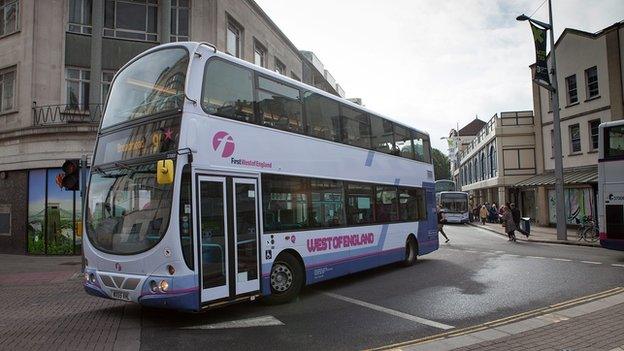
Scottish Labour has put forward the idea of making all bus transport free
(Am I the only one, of a certain vintage, to be reminded of a childhood memory of watching the Love Bug, a 1969 film about an autonomous and emotionally complex Volkswagen Beetle called Herbie, trying to throw itself off the Golden Gate Bridge? Don't believe me? You can look it up.)
Another of the more innovative policies for green transport is to pioneer zero-emission aviation in the Highlands and Islands. Orkney is soon to see trials of electric aircraft.
Talinn trolleys
I digress. Please note that one distinctive policy put forward by Scottish Labour for the next election is the idea of making all bus transport free. Not just for those aged 60 and over, but for everyone.
Sounds either improbable or impossible? Well, it's being tried in Estonia.
The Programme for Government carries a heavy hint that those under 26 might be included in public transport concessions, you can see that Nicola Sturgeon is preparing her response to Labour's largesse. The SNP doesn't like to be outbid on free stuff.
Line to take
For those who followed my recent reports on the construction industry - and for anyone else, indeed - you may be interested to note that new building standards are to be introduced, bringing an end to conventional gas or oil-fired central heating in new homes from 2024.
There is also some seed funding to help prime and expand the expansion of plug-in points for electric vehicles.
So, yes, green transport is a priority. Business and the economy also see a pledge of a new focus on attracting inward investment - at which Scotland already punches above its weight.
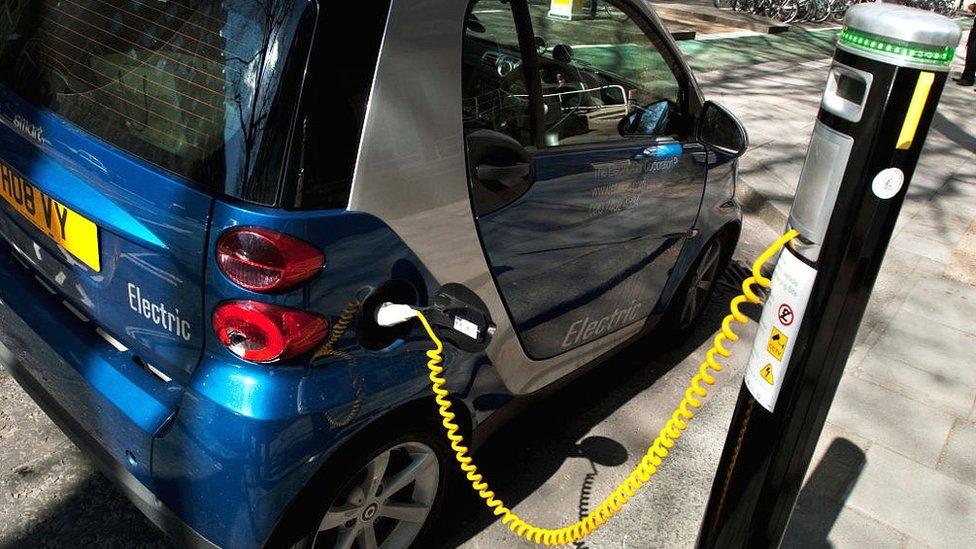
There are plans for more plug-in points for electric vehicles
On research and development by business, where Scotland has long punched well below its weight, there is more money to help stimulate it.
But the more you read the Programme for Government, the more a sense of priorities becomes dissolved into a very long list - less about choices than about defensive moves to show there's an answer to every policy challenge.
In government's media centre, there is a long list of issues on which there is the "line to take" when journalists ring up or email with a query. You'll hear them parroted also in ministerial answers to MSP questions.
The line taken is far from being an answer to many of the questions posed, but that approach - "we have an answer to everything" - is a window into a defensive mindset.
Place-based
If you look particularly at the chapter on the economy, you can see a lot of effort has gone into a perceived weak area for the Sturgeon administration. There are lines to take on life science, biotechnology, space, financial technology and on various aspects of manufacturing.
It includes a lot of reviews under way, starting with an infrastructure investment committee feeding into a five-year capital plan from early 2020. So it covers much of the next parliament.
And there are yet more strategies: on artificial intelligence, the maritime economy, on national transport, a new one for tourism and a crofting national development plan. Everything digital gets a lot of space.
Some of the business measures have been welcomed by Scotland's business groups, grateful for once not to be talking only about Brexit. But some are cautious also about the prospect of more regulation and red tape - on coffee cups and unhealthy food promotions, for instance - with not enough being done to reform or replace business rates.
And then, yes, sometimes the Scottish government jargon takes over. There is to be a "trial place-based approach to integrated business support for micro-enterprises operating in rural areas".
The acronym, to save you time, is TPBAIBSMEORA.
- Published3 September 2019
